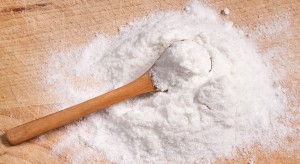 ia’s salt intake could prevent an estimated 5,800 heart attacks, the National Heart Foundation of Australia has said.
ia’s salt intake could prevent an estimated 5,800 heart attacks, the National Heart Foundation of Australia has said.The Heart Foundation has made the claims as part of World Salt Awareness Week, which runs from 10 March 2014 to 16 March 2014.
The Heart Foundation said research suggested that if intake of salt from processed foods was reduced by 15 per cent over 10 years, it would avert 5,800 heart attacks and 4,900 strokes each year. Heart Foundation Dietitian, Barbara Eden, said eating too much salt can cause high blood pressure and increased the risk of heart attack and stroke.
“Excessive salt consumption is a major killer and by cutting our salt intake we can prevent thousands of unnecessary deaths from heart disease and stroke,” Ms Eden said.
According to the Heart Foundation, one in three Australians aged 30 to 65, or around 3.5 million people, have been told by a doctor they have high blood pressure.
“The only way to find out if you have high blood pressure is to ask your GP for a checkup as there are no obvious signs or symptoms,” Ms Eden said.
On average, Australian eat around nine grams of salt a day (around one a half teaspoons), far in excess of the Heart Foundation’s recommended maximum of six grams (one teaspoon) for healthy Australians and four grams (two-thirds of a teaspoon) for people with existing high blood pressure or heart disease.
“Australian adults are each eating 3.2 kg of salt every year, which is three times more than we need,” Ms Eden said. “Children also eat more than three times what they need — an alarming 2.2 kg each year,” she said.
“Most people are surprised to learn that about three quarters of the salt we eat comes from everyday supermarket foods, rather than salt added at the table, which is why the Heart Foundation is running a campaign, ‘Halt Hidden Salt’, to get hidden salt out of everyday foods before they hit the supermarket shelves,” Ms Eden said.
“The Heart Foundation has also consistently called for a strong food reformulation program, robust labelling, education campaigns and upper limits for salt in processed food,” Ms Eden said. “Australia is making progress but like many other countries we still have a long way to go if we are to meet the new World Health Organisation target of reducing salt consumption by 30 per cent by 2025,” she said.





